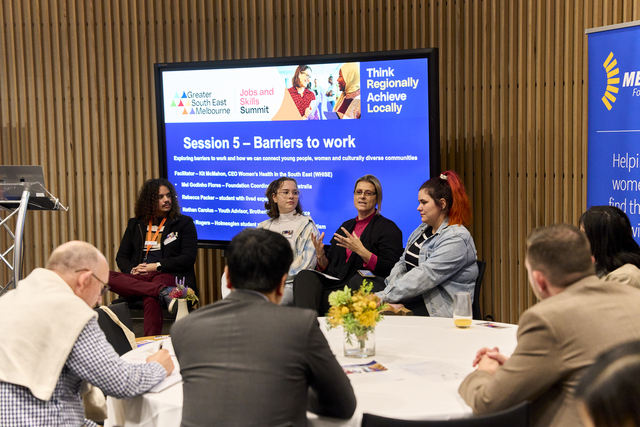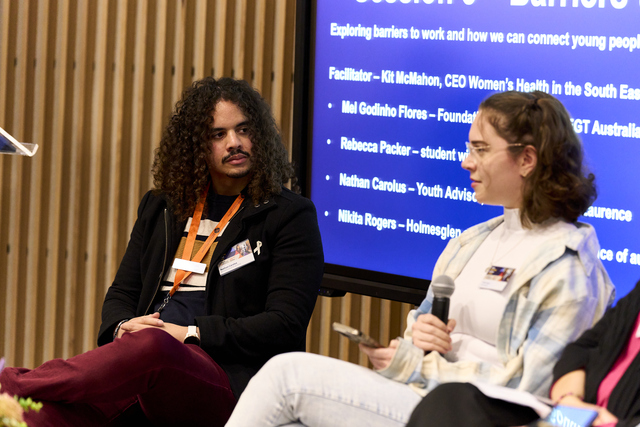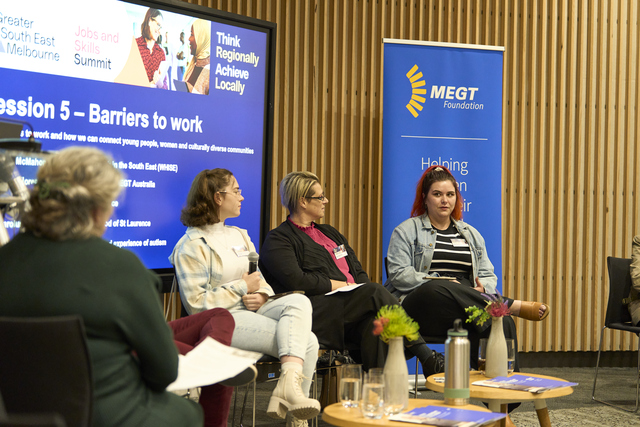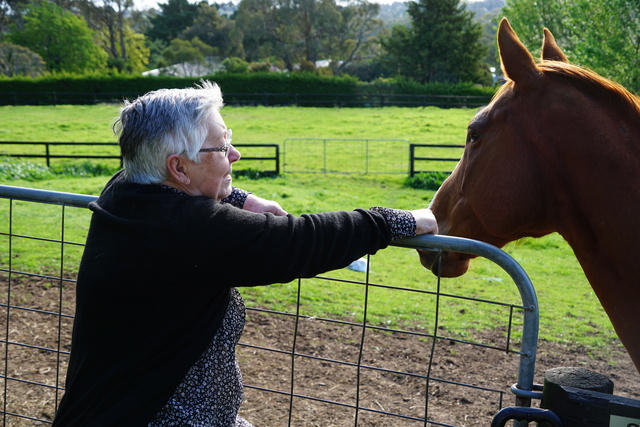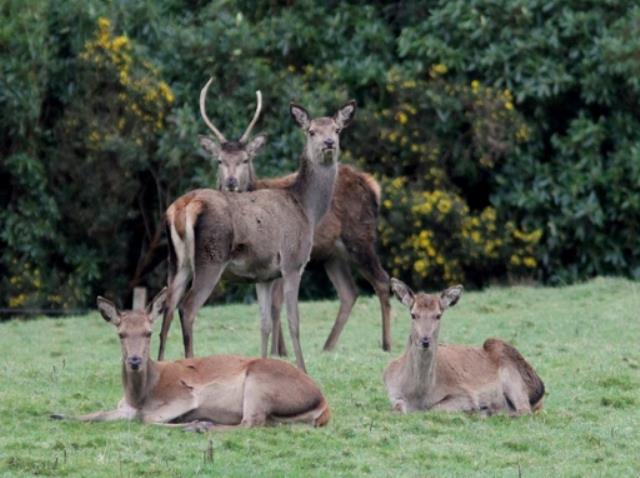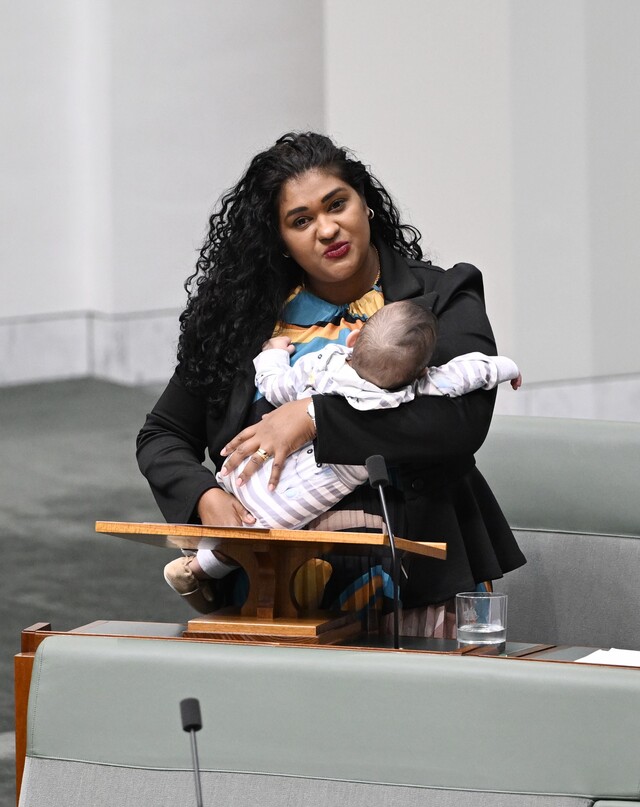Acknowledgement was the key factor being discussed during GSEM’s barriers to work panel for youth, women and culturally diverse communities on Friday 3 May.
Four speakers were present to deliver the panel, providing insight into lived experiences from their struggles and reaching the bottom line of recognising that not everyone fits into the same mould is the first crucial step to breaking these barriers.
Mel Godinho Flores, foundation coordinator of MEGT Australia who has personal experience of family violence and AOD, said that a main hindering factor of the learning model of Australia is that there is little to no recognition of people’s capabilities, “our learning journey isn’t linear, the line isn’t straight”.
“I think our education and training system makes the assumption that everyone has a normalised education from Prep to Year 12, and that will fit into this normal line.
“As adult learners, it is probably harder than normalising youth and adolescent learning, because as we get older we break out into our electives or our chosen fields of interest [but] everyone’s a variance,” she said.
Nikita Rogers, a Holmesglen student and student teacher at Monash was diagnosed with autism when she was three and further diagnosed with intellectual disability when she was four.
She had difficulty in her early years of education, having moved to five different schools since there wasn’t a model that could cater to her learning capabilities.
“My first two schools were special schools and when I went up to Year 6, my second school, I tested two points over the criteria and this is where things got complicated.
“I moved to a mainstream high school and out of all my school years, it was probably one of the hardest for me because at that time I didn’t know what special and mainstream was – I thought school was school,” she said.
Ms Rodgers has found solid footing as a person with high-functioning autism not just in her workplace, but also as a member of society – having acquired her licence, gaining employment and attending panels such as the GSEM sessions despite her social anxiety.
Rebecca Packer, a Bachelor of Social Work student at Deakin University, and according to her having a “collection [and] a bigger pile of chronic diagnoses” is not what “most workplaces would consider a standard diversity”.
“The way one of my employers in the past explained was that they know how to work with autism and they know how to work with ADHD, and with wheelchairs, but it was a combination of the two.
“I think the starting point is acknowledging the barriers, I feel as if a lot of places, when it comes to even disclosing some of these barriers, don’t quite understand how to even approach it.
“Are we listening to the people who are accessing the services that are being funded for mental education and understanding their experience? Are we listening to the voices of those who are actually using the space?” she said.
Nathan Carolus, a youth adviser at the Brotherhood of St Laurence said he “found a real passion for community service” and continues to work to find ways to support those struggling with barriers to work, but even so feels “as if my hands are tied a bit”.
“I feel as if I’m locked into work as much as I can so I can sustain myself, as much as I would like to study further and go for that career development opportunities, I just feel like I’m locked in,” he said.
For Ms Rogers, her “disability is silent, so I’m here to share my experience with autism and high-functioning autism, to spread awareness about being in a grey area in such a black and white world”.
Kit McMahon, CEO of Women’s Health in the South East (WHISE) who also led the panel, summarised the discussion as that there is “no norm”.
“We need to create more spaces for the grey, and understand that it’s not a binary world,” she said.

